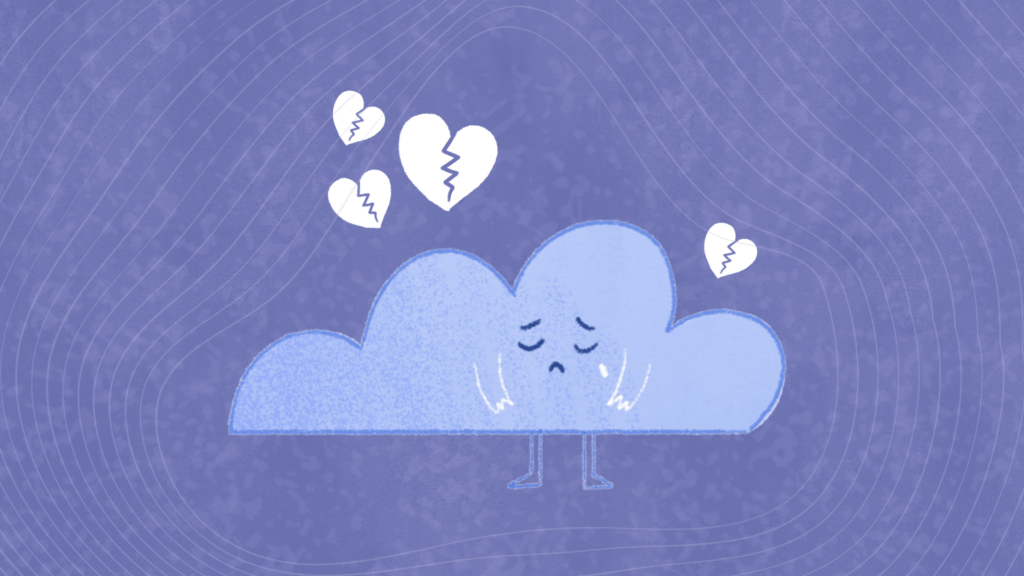Living With Loss: Grief Campaign

We’ve created a series of blogs looking at the sensitive subject of grief. This campaign aims to help if you’re struggling with losing someone, know that you’re going to lose someone, or want to help someone who’s grieving.
Here are the blogs created as part of our campaign:
- Living with Loss: Grief Campaign (this blog) – looking at what grief is, how to deal with it, and how to move on
- Anticipatory Grief: Feeling Loss Before Death – you can grieve before someone dies, like when someone has a terminal illness or dementia
- Supporting a Friend Through Grief – it can be difficult to know what to say and do when someone you know is grieving
- Video Games to Cope with Grief – exploring your feelings through playing games could help some.
- 6 Tips For Coping With Pet Loss – a pet is a part of the family, and it can be really hard when you lose them
- Coping with Grief at Christmas – events like Christmas can be tough when you’ve lost someone. It can be even more painful that they aren’t there with you
What is grief?
When someone you know dies, it can be extremely difficult. You may be grieving because of the death or loss of a family member, friend, peer, colleague, or pet.
There’s no one way to grieve. It might be influenced by your relationships with the person, culture, beliefs, or how your friends, family and community think about death.
Grief can involve lots of different emotions like sorrow, anger, resentment, shock, guilt and relief. You may also feel numb and not feel anything. It can affect how you feel, both mentally and physically.
However, people can still feel grief toward those who are living. It can also be felt after a change in relationship, such as a breakup or moving far away from those you love. Grief can also be felt if someone you’re close to develops an illness like dementia or cancer.
Dealing with grief
Grief is a process. There’s no specific length of time for it to last, and you shouldn’t have to think or feel a certain way, either. Sometimes, you’ll feel it when you least expect it, even years after your loss.
Most people work through their grief with the support of those around them, like their friends, family and communities. It can be isolating, so talking is a great way to work through it. If you don’t feel you can talk to those around you, you could seek support from grief counselling services and helplines like Meic (see below).
Expressing yourself can really help with the process of grief. You could write a letter to the person you’ve lost telling them everything you want to say. You could keep a journal or a diary of how you feel or write a poem, rap, or song in memory of the person. Or you could draw or paint a picture of them. Creating a memory box or scrapbook full of photographs and items that remind you of them could also help.
Moving on from grief
Some people feel guilty for not feeling intense grief anymore and being able to carry on with their lives. This doesn’t mean that you don’t care for the person you have lost. You can move on and continue to live your life the way you want.
Getting help
Hope Again
A youth website by Cruse Bereavement Support. A safe place where you can learn from other young people how to cope with grief and feel less alone. Call the Cruse helpline on 0808 808 1677 between 9:30 and 5pm Monday and Friday and between 9:30 and 8pm Tuesday, Wednesday, and Thursday. Visit their website to find support in your area.
Winston’s Wish
Helping children, teenagers and young adults to find their feet when their worlds are turned upside down by grief. Their Help 2 Make Sense website has advice, tips, and real-life stories from other grieving young people. Visit their website for information about the grief support available, including Live Chat, Email, Helpline, counselling, support, resources and activities.
Grief Encounter
Supporting bereaved children and young people. The Grieftalk helpline offers confidential, emotional support and guidance to anyone affected by grief. 0808 802 0111 9am-9pm weekdays Visit their website for details about counselling, workshops and other resources that can help.
Talk to Meic
Free and confidential helpline for children and young people up to 25 in Wales. Help if you’re worried about something, have questions, or need information or advice. We can put you on the right track if you don’t know who to contact. We can even help you talk to others if you’re struggling. Call our helpline from 8am to midnight every single day: 080 880 23456 or chat to us online.



























